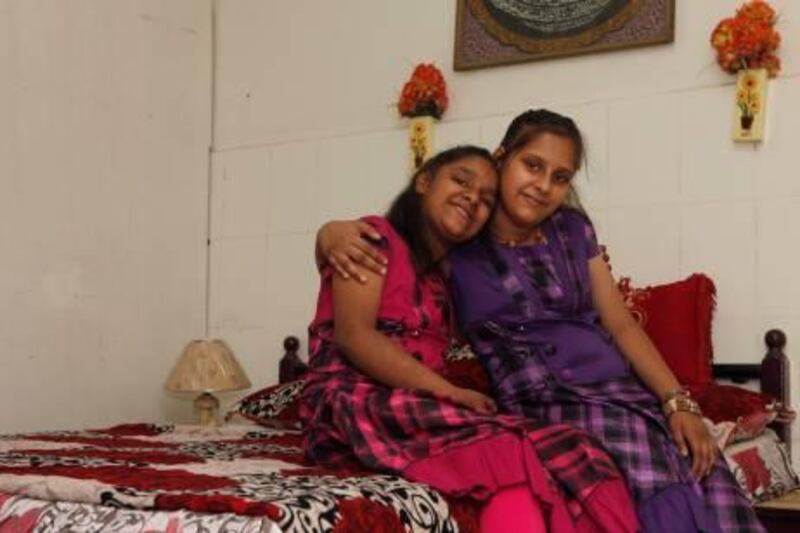AJMAN // Parents of five pupils with special needs are worried they will have to take their children away from school in September after cash-strapped sponsors backed out.
Aid workers say this will detract from the education and social skills the students have absorbed over the past several years.
The five South Asian students live in Ajman, Sharjah and Dubai. Aged between eight and 28, they have conditions ranging from Down Syndrome to attention deficit disorder.
But sponsorship for their education dried up after the recession.
"Not going to school will affect them because school is a form of life for them," said Neena Nizar, a volunteer with Special Families Support Group (SFS) that raises money for about seven needy students annually. "It's a pretty grim scenario. This year we are struggling to make up funds. Times are difficult because of the recession, people are more careful of their money. It's not that sponsors don't want to help, but in a crunch people find it difficult."
Before, individual donors, consulates and corporates sponsored fees of about Dh26,000 per child for an academic year. This year, SFS has fallen short of Dh50,000 for five students.
In some families, fathers have lost jobs or daily work is dwindling. Monthly salaries of between Dh2,000 and Dh3,000 make school fees unaffordable.
In a small one-room Ajman home, a Pakistani mother squats on the floor with two daughters, aged 10 and 14.
"Fatima would yell and scream, she wouldn't sit still before Manzil," said Hamida Gulab, 37, about her younger daughter who yanks out school bags stacked under the bed along with the family's other possessions.
"Now she helps her sister serve guests and clears the house. My heart says this school does hard work. Every year we get a sponsor, but this year I'm very worried."
Parents such as Mrs Gulab panicked last week after receiving a letter from the Manzil centre in Sharjah asking them to complete 2011/12 re-registration including "handing over necessary cheques" or forfeit their seat.
"We are now working on the assumption that you do not intend your children to return to Manzil in September. As such, we have released the places to the waiting list and have already started assessing students for the spaces available," the letter said.
Officials at the centre played down the letter and insisted that children were never turned away because of insufficient funds. The centre runs programmes for 43 students.
"We are just telling parents to actively look for sponsors because otherwise it is very difficult to maintain and run a charity," said Sari Kuparinen, Manzil's operations manager. "We have also taken on the cost of some children. But this time we still have no sponsors."
This dilemma is also evident at Al Noor Training Centre for Children with Special Needs in Dubai, where at least one young boy's family, from a 260-strong student body, faces similar obstacles.
"We are sitting on the edge trying to raise fees," said Isphana al Khatib, the centre's director, adding that 65 per cent of parents were not paying full fees. "To maintain service we must ensure fees are coming in. People pay a fraction of their fees. We are half a million in arrears and face a huge challenge."
Several Al Noor projects have been delayed such as plans for a gym open to all special-needs students in the emirate and an afternoon programme to teach skills to students over 16.
Aid workers say children will pay the price if they miss school.
"Times are tough and the children are bearing the brunt of it," said Ms Nizar of SFS. "They will be psychologically affected if they can't attend school."







